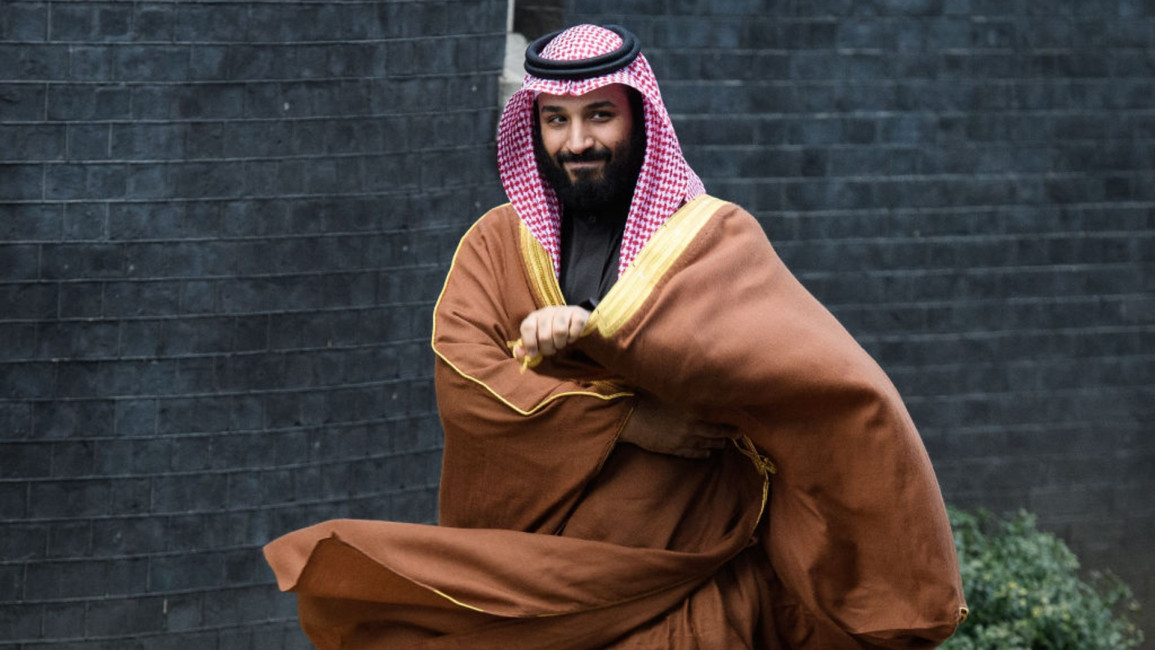
Business as usual: UK imposes sanctions, then praises ties with Saudi Arabia
Ahmed al-Asiri, former head of Saudi intelligence service who allegedly commissioned the 15-man team that travelled to Istanbul in advance of Khashoggi's killing, and Saud al-Qahtani, once a key advisor to Crown Prince Mohammad bin Salman, were the highest level individuals mentioned, though others said to be present at the time of the killing in the Saudi consulate in Istanbul were also included on the list.
Foreign Secretary Dominic Raab claimed that such legislation, put in place in advance of Brexit to demonstrate the UK's foreign policy direction, "is a clear example of how the UK will act as a force of good in the world, standing up for human rights." Nonetheless, other news out of the UK and Saudi Arabia this week calls into question the extent to which British actions will change in line with such rhetoric, and the degree to which Saudi ambitions at home and abroad may change.
Indeed, also this week, the UK government was accused of having contacted the Saudi government before the sanctions were publicly announced to apologise to the regime. Defence Minister Ben Wallace is said to have phoned his Saudi counterpart ahead of the announcement to apologise and ensure that the relationship was still intact.
And while the British government did not publicise such a call, Saudi Arabia's state-run news agency released a press statement confirming that the minister "affirmed the country's government's keenness to strengthen defence relations between the two friendly countries, especially in the field of military exports to the Kingdom."
 |
The relationship is unlikely to change significantly even with the imposition of sanctions |  |
This announcement in the Saudi press, particularly the mention of continued arms sales, indicates an understanding that the relationship is unlikely to change significantly even with the imposition of sanctions.
Further, it was announced this week that the UK will resume arms exports to Saudi Arabia after a suspension was put in place last year over concerns about the misuse of Saudi weapons in Yemen. International Trade Secretary Liz Truss announced a lifting of a ban after a review of sales found "possible" war crimes at the hands of Saudi forces in Yemen but dubbed them "isolated incidents."
Twitter Post
|
As a result, the conclusion was that there is "no clear risk" of such breaches in the future, and so the arms exports can continue. While similar moves have been made in US Congress to stop arms sales to Saudi Arabia, they have been overruled by the White House, and only Germany has banned all arms exports to Saudi Arabia in 2018 after the murder of Jamal Khashoggi.
With the UK-Saudi relationship secure, Crown Prince Mohammed bin Salman also appears to be moving ahead with his plans to centralise power and to diversify the Saudi economy, undeterred by international condemnation or the global pandemic.
Read more: Khashoggi's Saudi 'killers' sanctioned by UK government
Indeed, Saudi authorities are said to be demanding a $15 billion settlement from former Crown Prince Mohammed bin Nayef who was jailed earlier this year and is said to face charges of both disloyalty and corruption during his time as interior minister.
Associates claim that the allegations are nonsensical and that his use of the funds fell within the rubric of a 2007 royal decree issued by then-King Abdullah to disguise counterterrorism efforts through the creation of "appropriate vehicles in the private sector."
Still, moves against the former crown prince, who once enjoyed a fruitful relationship with the American intelligence world in particular, further demonstrates the extent of his power at home and his willingness to continue shutting down alternate centres of political power.
Saudi Arabia is also said to be launching an $800 billion plan to double the size of Riyadh over the next decade to make it "an economic, social, and cultural hub," despite continued concerns about low oil prices and the prospects of economic recovery after the Covid-19 pandemic. Still, Mohammed bin Salman appears eager to prove his ability to put in place plans related to Vision 2030, which have increasingly been called into question given the global economic downturn.
All in all, we have seen this week the extent to which business as usual continues both in terms of Saudi Arabia's foreign relationships, despite some change in rhetoric on the part of the UK, at least publicly, as well as at home.
In spite of the global outrage at Khashoggi's killing in 2018 and in the face of domestic challenges brought on by economic troubles and a continued Yemen war, Mohammed bin Salman seems poised to continue pursuing his domestic and international goals.
Dr Courtney Freer is a research fellow at LSE Middle East Centre.
Follow her on Twitter: @CourtneyFreer
Opinions expressed in this article remain those of the author and do not necessarily represent those of The New Arab, its editorial board or staff.




